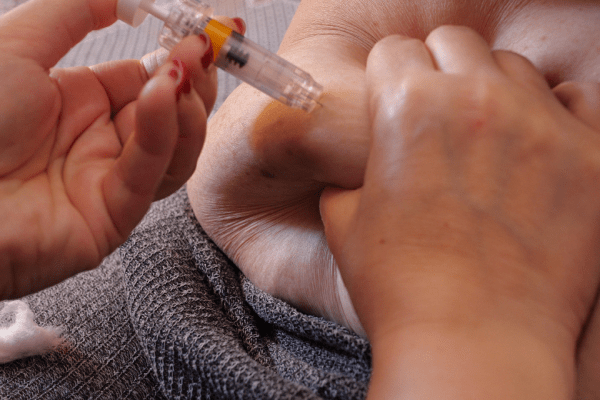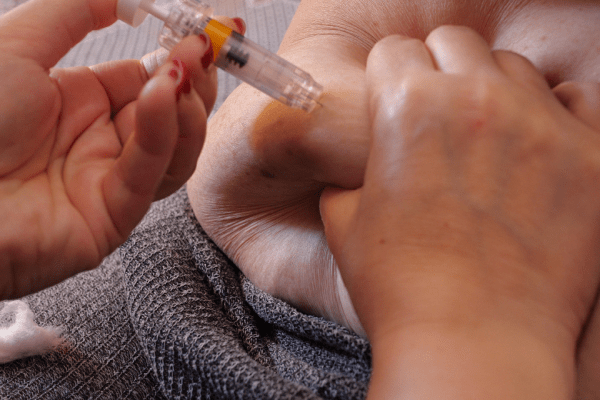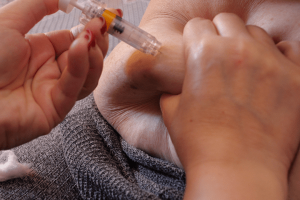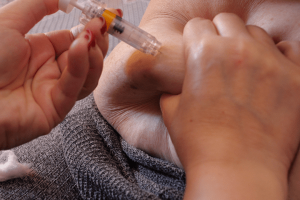How Does IVF Work? IVF Stages And Prices 2023
What is IVF Treatment? How Does IVF Work?
IVF, or in-vitro fertilization, is a fertility treatment that helps couples achieve pregnancy. In IVF, eggs are retrieved from the mother and combined with sperm from the father in a laboratory. The embryos are then transferred to the uterus for implantation and pregnancy. IVF treatment can help individuals and couples overcome infertility due to a variety of factors including blocked fallopian tubes, polycystic ovary syndrome, and male fertility problems.
When Should Couples Who Cannot Have Children Turn to IVF Treatment?
When couples are unable to conceive a child through traditional methods, they may want to consider turning to IVF treatment. IVF is a safe and successful fertility option for couples facing infertility due to a variety of conditions, such as blocked fallopian tubes, polycystic ovary syndrome, male fertility problems, and age-related infertility. With success rates of around 40% per cycle, IVF may be the right choice for many couples hoping to become parents. Couples who wish to explore this option should speak to a fertility specialist and discuss their unique situation to determine what treatment path is best for them.

Situations In Which IVF Treatment is Preferred
- Blocked Fallopian Tubes
- Low Sperm Count
- Unexplained Infertility
- Advanced Maternal Age
- Endometriosis
- Uterine Fibroids
- Male Infertility
- Implantation Failure
- Ovulatory Dysfunction
- Polycystic Ovary Syndrome
How Old Can IVF Be Applied?
IVF can be applied to people of all ages and can be a successful fertility option for couples regardless of age. The success rate of IVF treatments is typically higher for female patients under the age of 35.
Is There A Method To Improve Egg Quality In Advanced Age IVF Treatment?
Yes, there are methods to improve egg quality for individuals undergoing IVF treatments in midst of advanced age. Some of these methods include the use of medications to stimulate ovulation, intra-uterine insemination (IUI), egg donation, and preimplantation genetic screening (PGS). Additionally, practices such as mindfulness, yoga, and good nutrition can help reduce stress levels, which can also help improve egg quality.

What Is The IVF Process?
In-vitro fertilization (IVF) is a fertility treatment that helps couples achieve pregnancy. In IVF, the mother’s eggs are retrieved and combined with sperm from the father in a laboratory setting, resulting in the creation of fertilized embryos. These embryos are then transferred to the uterus to achieve successful implantation and pregnancy. IVF treatments involve a variety of methods, including ovarian stimulation and the harvesting of eggs, sperm retrieval, fertilization, embryo selection and culture, and embryo transfer.
What are the Stages of IVF?
The stages of IVF treatment can include ovarian stimulation and egg retrieval, sperm retrieval and fertilization, embryo selection and culture, and embryo transfer. Ovarian stimulation is done to increase the number of eggs that are ready for retrieval. Eggs are retrieved through a minor surgical procedure and sperm is retrieved from the father. Fertilization occurs in the lab, when the eggs are combined with the sperm. Embryo selection follows, which is when the embryos with the highest potential for implantation and pregnancy are chosen. The embryo culture stage involves storing the embryos in a laboratory setting. The last stage is the transfer, when the embryos are injected into the uterus.
IVF Stages
- Ovarian Stimulation and Egg Retrieval
- Sperm Retrieval and Fertilization
- Embryo Selection and Culture
- Embryo Freezing
- Embryo Transfer
- Luteal Phase Support
- Pre-Embryo Transfer Evaluation
- Embryo Biopsy
- Blastocyst Culture
- PGS/PGD Analysis
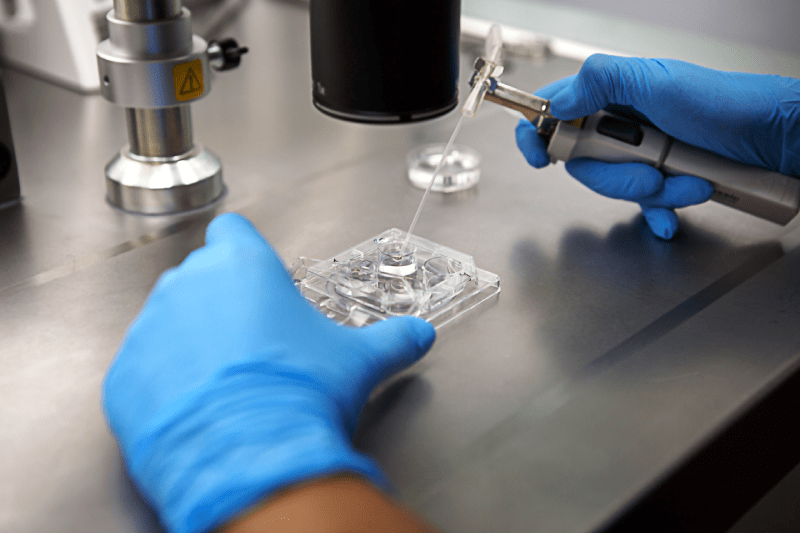
How Many Times Can IVF Be Tried?
IVF can be attempted up to six times, however the amount of times needed will depend on a variety of factors such as the cause of infertility and the age of the individuals in treatment. You should keep in mind that the success rate of IVF experience after the 3rd attempt is lower. It is important to speak to a fertility specialist and discuss these factors to determine the best course of action.
Success Rates in IVF Treatment
The success rate of IVF treatments vary depending on many factors such as the cause of infertility, age, and other individual circumstances. Generally, the success rate per cycle is approximately 40%. However, with new technology and techniques emerging, the success rate for IVF treatments is continually increasing.
Best Country for IVF Treatment
The success of IVF treatments depends on many different factors. Many countries offer excellent IVF treatment programs, and it is important to consider several different criteria when choosing the best option for you. Factors to consider include cost, success rate of the treatment, quality of care, availability of specialists, and the facility’s technology. Ideally, couples should seek out a country with a reputable fertility center that meets their individual needs.
IVF is one of the largest industries in Cyprus and in the last decade the country has gained a reputation as one of the top fertility locations in the world. Facilities in Cyprus are equipped with modern medical technology. Cyprus’ medical team consists of experts with many years of experience in treating patients from all over the world, including the United States.

IVF Prices 2023
The cost of IVF treatment can vary significantly depending on the clinic, the services provided, and any additional treatments needed.To discuss pricing options and create the best plan for your budget, you’ll need to research fertility clinics in all countries. This will take quite a lot of time. Fortunately for you, we have searched for the most affordable, best IVF Country and IVF treatments that offer successful results. You can contact us for more detailed information about IVF treatments.


